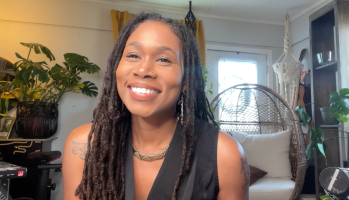The act of cultivating a “gratitude attitude” has been associated with multiple benefits—for our physical health, our psychology, and even our social connections. And although it’s become a bit of a buzzword in the social media realm, it’s more than that. A powerful tool for enhancing our overall well-being, it’s a simple yet profound strategy that helps us significantly enhance our quality of life.
I can’t begin to express how much having a gratitude practice has positively impacted my own life. After receiving my Generalized Anxiety Disorder (GAD) diagnosis in 2018—and especially during the height of the COVID-19 pandemic—practicing gratitude was one of the main ways I kept myself out of negative thought loops and grounded in the present moment. These days I start each day by writing down a list of things I’m grateful for, and when I find myself in challenging situations that trigger my flight response, I do my best to find the lessons in those moments so that I’m able to move through them and ultimately come out of them a more learned and evolved version of myself. Making this a regular practice has been like building a muscle, and now, my brain has been trained to process most life situations—good and “bad”—from this lens.
Numerous scientific studies support this phenomenon; it’s been proven that engaging in gratitude practices stimulates the formation of new and positive neural pathways. This, in turn, prompts heightened awareness of our automatic thoughts and fundamental beliefs. Studies have also demonstrated the positive impact of gratitude on mental and physical health. Not only has the act of expressing thanks been associated with increased happiness and improved overall well-being, but it’s also been proved to lead to reduced depression, lessened anxiety, and better heart health—all things that can benefit Black people and our experiences living in a society where our existence is threatened daily.
One of the key ways gratitude enhances our well-being is by shifting our focus from what is lacking to what is present. We live in a world often dominated by a scarcity mindset, so acknowledging and appreciating the abundance in our lives can bring about a profound shift in perspective. It’s important to note that this shift is not about ignoring our challenges or the troubles of the world, but about recognizing the positive aspects that coexist with difficulties. Therefore, gratitude can help us cultivate resilience in the face of challenges, and by making gratitude a consistent part of our daily routines, we can foster a positive mindset that contributes to a more fulfilling and meaningful life.
If you’re ready to build your own gratitude practice, below are four practical ways to add moments of thanks to your daily routine:
Keep a Gratitude Journal
Start a daily or weekly gratitude journal where you jot down things you’re thankful for. It could be as simple as witnessing a beautiful sunset, receiving a kind text from a friend, or a personal accomplishment. Reflecting on these positive aspects can help shift your focus towards gratitude.
Express Gratitude to Others
Take the time to express your appreciation to those around you. Whether through a heartfelt note, a verbal thank-you, or a small gesture, acknowledging others can strengthen your relationships and create a positive atmosphere.
Practice Mindfulness and Reflection
Incorporate mindfulness practices into your routine. This can be gratitude meditation—where you meditate with a focus on the things that you’re thankful for—or simply taking moments throughout the day to pause, breathe, and reflect on the positive aspects of your life. Mindfulness can help you become more aware of the present moment and the things you may otherwise overlook.
Create Gratitude Rituals That Fit Your Lifestyle
Establish rituals that remind you to practice gratitude regularly. It can be as simple as expressing thanks before meals, creating a gratitude jar where you deposit notes of appreciation, or setting aside time each week for reflection. The important thing is that it aligns with you and your spirit. And soon, it’ll become second nature.
Steph R. Long is a Chopra-certified Ayurvedic health instructor, meditation instructor, and well-being coach. She’s also the founder of holistic wellness and coaching company SRL Well-Being and the former Deputy Director of Enterprise for Refinery29 Unbothered, where she oversaw health, wellness, and spirituality content. As a queer Black wellness practitioner who strives toward inclusivity, Steph centers BIPOC and QTBIPOC, who are often underserved by the wellness industry. Her commitment is to help everyone rediscover their inner wisdom, empowering each of her clients to cultivate self-awareness and lead vibrant, purposeful lives.













